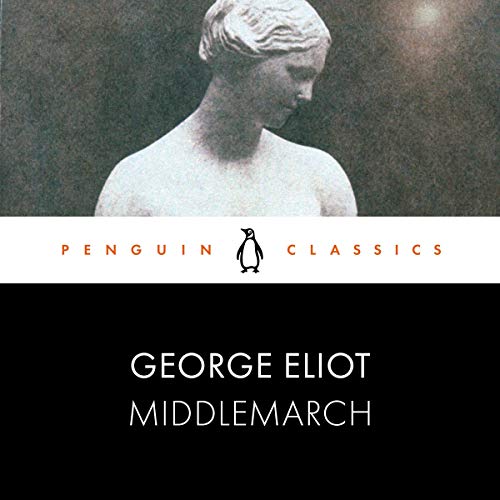
Middlemarch, like many many-paged books, seems to be a top candidate for lockdown reading these days, 819 pages in my Penguin edition. I just read the long, dense, and repetitive Absalom, Absalom again, it being timely, given that it is about how great wealth and power requires the exploitation and degradation of women and black people–and by extension, all people of color, children and non-hegemons–but more on that book later. If you’ve decided to read a big book, by all means, leave us a comment and let us know what it is. A few friends of mine turned out to be reading Middlemarch too. Hooray! We will read together.
I’ve already read Middlemarch though. I read it in college for a Victorian lit class, but I remembered very little about it other than that I’d disliked it. I’d skimmed. And when I read the first 50 pages, I remembered why. Dorothea Brooke’s youth and beauty are extensively described in the opening chapter, as well as her priggishness and sanctimony. She has an admirable desire to live the life of the mind, and learn from brilliant scholars, and this is what leads her to marrying, against the hopes and advice of the surrounding community , the Reverend Edward Casaubon. He is about thirty years older than she is, near 50, and his physical repulsiveness and decrepitude is described by her younger sister Celia who struggles to hide her revulsion. He has hair growing from moles on his face. Fortunately she didn’t describe his breath, but it hangs miasmatically in the book’s atmosphere. And this is as far as I got, page 51. I am encouraging myself to continue after this unpromising beginning, though if it develops along gothic lines, well then that’s another thing. But George Eliot, famously, didn’t submit to the 19th century marriage plot so why does Dorothea Brooke?
I was also put off by discouraging passages encouraging defeatist positions on women’s potential and possibility. The prologue extols the admirable qualities and goodness of Saint Theresa, and how so many women are not given the opportunity to fulfill their promise. And what to make of epigraphs such as “Since I can do no good because a woman, Reach constantly at something that is near it” which precedes chapter 1, and casual observations by the characters that even a man’s ignorance is superior to a woman’s intelligence, whose intelligence is downgraded to “cleverness”, like a dog performing tricks? Again, George Eliot’s anachronistically liberated life could have informed the lives of her characters. Why didn’t it?
So, we have begun. I’m sure to discover what is great about this novel soon. I just haven’t yet.
One thought on “Middlemarch Diary. Prologue & Chapters 1-14”
Comments are closed.